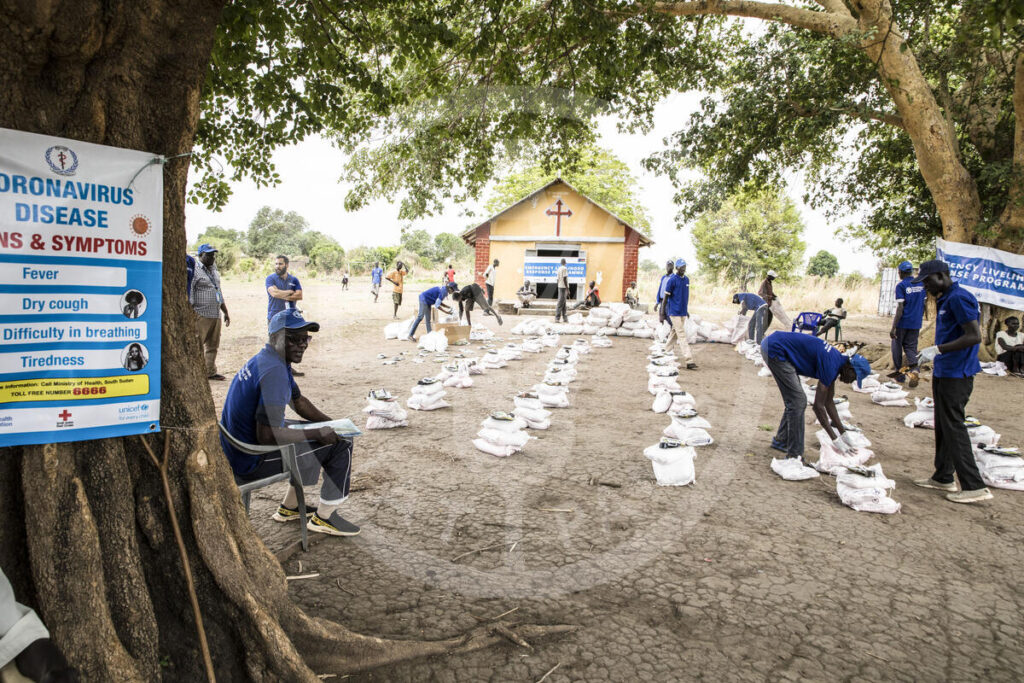The Government of Eastern Equatoria State, in collaboration with the Food and Agriculture Organization (FAO), last week started distributing agricultural tools and seeds to farmers in Torit under the theme “Enhancing access to seeds and technology for better production.”
James Francis, the FAO representative, said the exercise which was launched at Torit Freedom Square targets at least 7,500 farming households, an equivalent of 40,000 beneficiaries.
“We intend to support 7,500 farming households across Eastern Equatoria State through seed fares, and that is just part of the overall 40,000 households that are going to be supported through direct seed distribution,” he said. “These activities will provide improved crop seeds, hand tools, and extension support to vulnerable smallholder farmers, ensuring they are prepared for the planting season.”
“Each farmer will get a voucher through the seed fare and we gave a voucher of USD 32 which is SSP 141,000 which will be enough to provide an equivalent of 20 kg of various seeds that the farmers will be able to select based on their needs and preferences,” Francis added.
Meanwhile, Ochola Bosco Oringa, the state minister of agriculture, environment, and forestry, urged farmers across the state to use the opportunity wisely by intensifying farming to eradicate hunger.
“Whatever you get here in terms of seeds and inputs will help you to prepare yourself so that you do not suffer from hunger,” he said. “We cannot fight hunger if we do not embark on farming, so this is a very good support that FAO has shown to promote agricultural activities in the state.”
For her part, Betty Ihure, a beneficiary, lauded FAO for distributing seeds to local farmers.
“I thank FAO for the help they have given to our population in agriculture. Last year, I got the seeds from the market, and I cultivated sorghum in my garden, and I currently do not buy food because I have produce from my farm,” she said. “I encourage our people, especially women, to cultivate so that we can earn a living. I can buy clothes for my kids and pay their school fees, so let us continue to cultivate because it will help us.”




